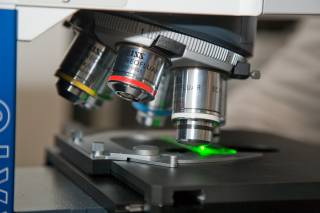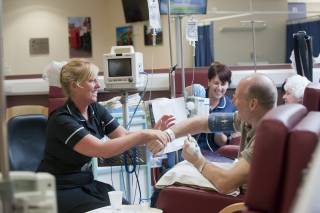Ongoing clinical trials contribute to our understanding of the causes of stroke, treatment and recovery.
Ongoing clinical trials are listed below, some of which are open for recruitment. For full information, click on the link at the end of each section. Send any enquiries to stroke@ucl.ac.uk
ACUTE TRIALS - Acute stroke trials invite patients to participate within a short time period after the onset of stroke symptoms - up to 12 hours, 72 hours, 96 hours and 120 hours.
CHARM: A phase 3 study to evaluate the efficacy and safety of intravenous BIIB093 (Glibenclamide) for severe cerebral edema following large hemispheric infarction
TEMPO-2: A randomized controlled trial of TNK-tPA versus standard of care for minor ischemic stroke with proven occlusion
DASH: Desmopressin for reversal of antiplatelet drugs in stroke due to haemorrhage
OPTIMAS: Optimal timing of anticoagulation after acute ischaemic stroke: a randomised controlled trial
BIAL-2093-213: Prevention of epilepsy in stroke patients at high risk of developing unprovoked seizures: anti-epileptogenic effects of eslicarbazepine acetate
ICONS II: Identifying continence options after stroke, a randomised controlled trial
SC-IL 1Ra: Looking at whether a new drug, interleukin-1 receptor antagonist, improves outcome following aneurysmal subarachnoid haemorrhage
For more details of these trials see:
HYPERACUTE TRIALS - Research in the hyperacute time period - within 9 hours following a stroke - provides time-dependent, effective stroke treatments.
ATTEST2: Looking at whether tenecteplase is more effective than alteplase in patients with acute ischaemic stroke
TWIST: a trial of tenecteplase for patients who wake up with acute ischaemic symptoms
BLOC-ICH: A phase II trial of interleukin-1 receptor antagonist in intracerebral haemorrhage: blocking the cytokine IL-1 in ICH
For more details of these trials see:
RANDOMISED CONTROLLED TRIALS - Randomised controlled trials (RCTs) are the gold standard for studying the efficacy and safety of new treatments. Participants are randomly allocated a specific intervention/treatment versus being a control.
LACI-2: This trial, LACunar intervention trial-2, is testing cilostazol and isosorbide mononitrate in lacunar or small vessel stroke patients, preparatory to a phase 3 trial
CONVINCE: Evaluating colchicine in adults over 40 years of age with an ischaemic stroke or transient ischaemic attack not caused by cardiac embolism or other defined cause
PROHIBIT-ICH: Looking at whether intensive lowering of blood pressure after intracerebral haemorrhage is effective in reducing brain injury
SoSTART: Investigating whether starting or not starting anticoagulant drugs is better for patients with a brain haemorrhage
XILOFIST: Investigating whether allopurinol reduces further damage to the brain and reduces heart size and blood pressure in patients after stroke
For more details of these trials see:
OBSERVATIONAL STUDIES - Observational studies look at the after-effects of stroke, at rehabilitation and other interventions designed to aid recovery and adjustment.
PLORAS: Looking at recovery of speech and language difficulties after stroke, aiming to predict level of recovery and length of time to achieve this
Optimising Prediction of Stroke Outcome: Using brain imaging machine-learning to analyse brain scans and clinical details to estimate how well a patient will recover
VOBIS: Developing a new test for chemical changes in the blood seen shortly after stroke. This will aid the diagnosis of stroke
ReCAPS: Re-opening the critical period for recovery after stroke - Exploring how brain activity changes after the upper limb is affected by stroke
NeuroP: Aiming to understand how the brain recovers after stroke, allowing patients to know how long their recovery may take
Dnalacunar 2: Genetic risk factors for cerebral small vessel disease: expanding the lacunar stroke genetics resource
Apraxia Study: Identifying motor processing pathways in the brain involved in limb apraxia and natural mechanisms for recovery
UK Familial Cerebral Small Vessel Disease Study: Investigating hereditary forms of stroke with the aim of identifying and preventing disease
For more details of these studies see:
 Close
Close



